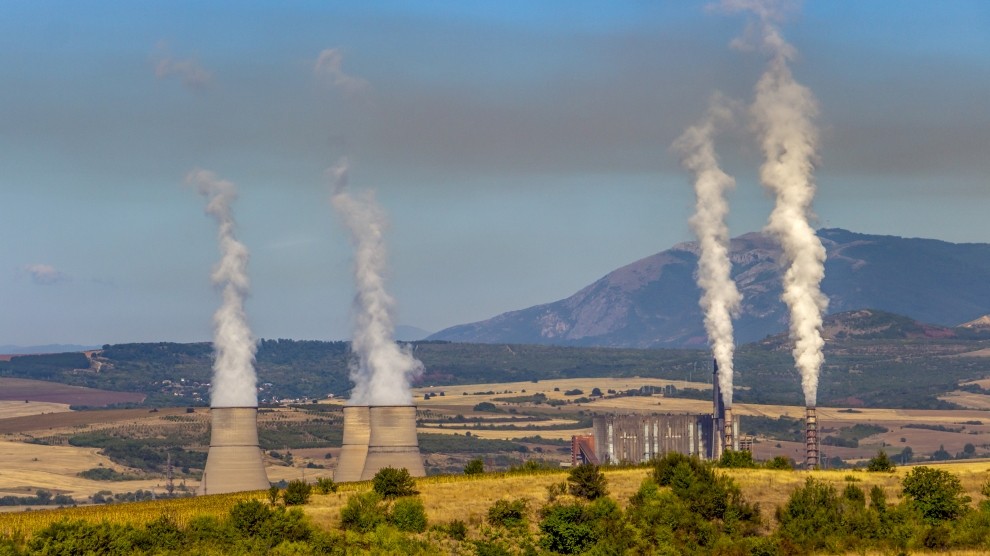Everyone has read the jokes about how the most important thing in the 21st century is that one should have access to internet. And everyone in the civilized world take for granted such services as electricity and water supply.
This, of course, was not always the case, and older people well remember how in the 1980s and 1990s people in our country searched desperately for candles or a lamp on rechargeable batteries. And the reason was clear – the problems with the electricity supply and supply of quality electricity.
The Bulgarian energy system has not always been in its optimal shape, as it is now. One of her worst moments was the fatal Friday the 13th in 1978. Then in the early afternoon , at 1:13 p.m., the biggest power failure of the energy system occurs: after disruptions in a major power line, all power plants are shut down, and consumers, including factories, plants and government offices, are left without power for hours.
On this cold January day, Bulgaria’s energy system breaks down for the first time. It all started with problems with electricity supply along the Druzhba power line. This is one of the largest power lines in Bulgaria which connects Bulgaria’s energy grids with that of Romania and the then Soviet Union. The power line was heavily loaded at the time due to insufficient electricity generation in Bulgaria.
It was on the fatal day that disturbances began in the operation of the power facility, which led to the shutdown of a generator at Bobov Dol TPP.
From there, as a domino effect, all plants are shut down and consumers are left without electricity. At this difficult time and in a crumbling energy system, the newly built small units of Kozloduy Power Power Plant (then there was only Unit 1 and Unit 2) were switched off as a matter of urgency and their power generation capacity was reduced to the critical minimum, energy experts recall today.The emergency cooling system of the reactors had to be turned on.
The generating capacity in the Maritsa Iztok complex was out of order, and after a few days they managed to fully restore it. Other power plants fueled by coal have also been shut down, hydropower plants are also excluded from the system.
On this day, then Minister of Energy Prof. Nikola Todoriev had a meetingwith his Romanian counterpart. Once he became aware of the crisis situation, he immediately left for Bulgaria, but during this time the dispatchers of the System Operator began to restore the system. The accident was reported to Prime Minister Stanko Todorov, explaining that such an energy collapse could happen even in the best Western energy networks.
To restore the electricity supply, operators then began to include first the HPP, and a small number of key electricity users. After restoring stability in voltage and frequency in the system, the inclusion by areas of all other users and plants has begun. Thus, for about eight hours the energy crisis was brought under control and the power supply was restored in most of Bulgarian homes.
However, a full system restoration takes about a week, dispatchers recall. Nowadays, energy experts recall these difficult times with a slight smile, because then “no one wanted their mistakes to be exposed”.
Indeed, at the time, our energy system was operating at the limit of its capabilities having no such large reserves as the modern facilities are required to have.
It is precisely because of the lack of capacity and the problems in electricity supply that modernization of the energy complexes in Maritsa Iztok, Varna, Bobov Dol and Kozloduy Nuclear Power Plant was started.
In the 21st century, it is important to remember such events, because a similar breakdown of the energy system happened recently in Pakistan. Due to a problem in one of the major power generators the Asian country sank into darkness for almost a day.
A day earlier in Europe there were disturbances in the frequency of voltage in the national energy system, which in Bulgaria led to a power outage of Solvay Sodi. Photovoltaic plants were also switched off. A decade ago there was a problem with the country’s major power grid, and then eastern Bulgaria was separated from the single energy system. Then only thanks to the work of TPP Varna the eastern part of the country did not sink into darkness.
These examples show that nowadays the internet is not the basis of everything, but the energy system which needs to be developed and maintained at a proper level. For this purpose, investment is also needed not only in long-distance power lines, but also in new base plants that we can rely on at any time.

